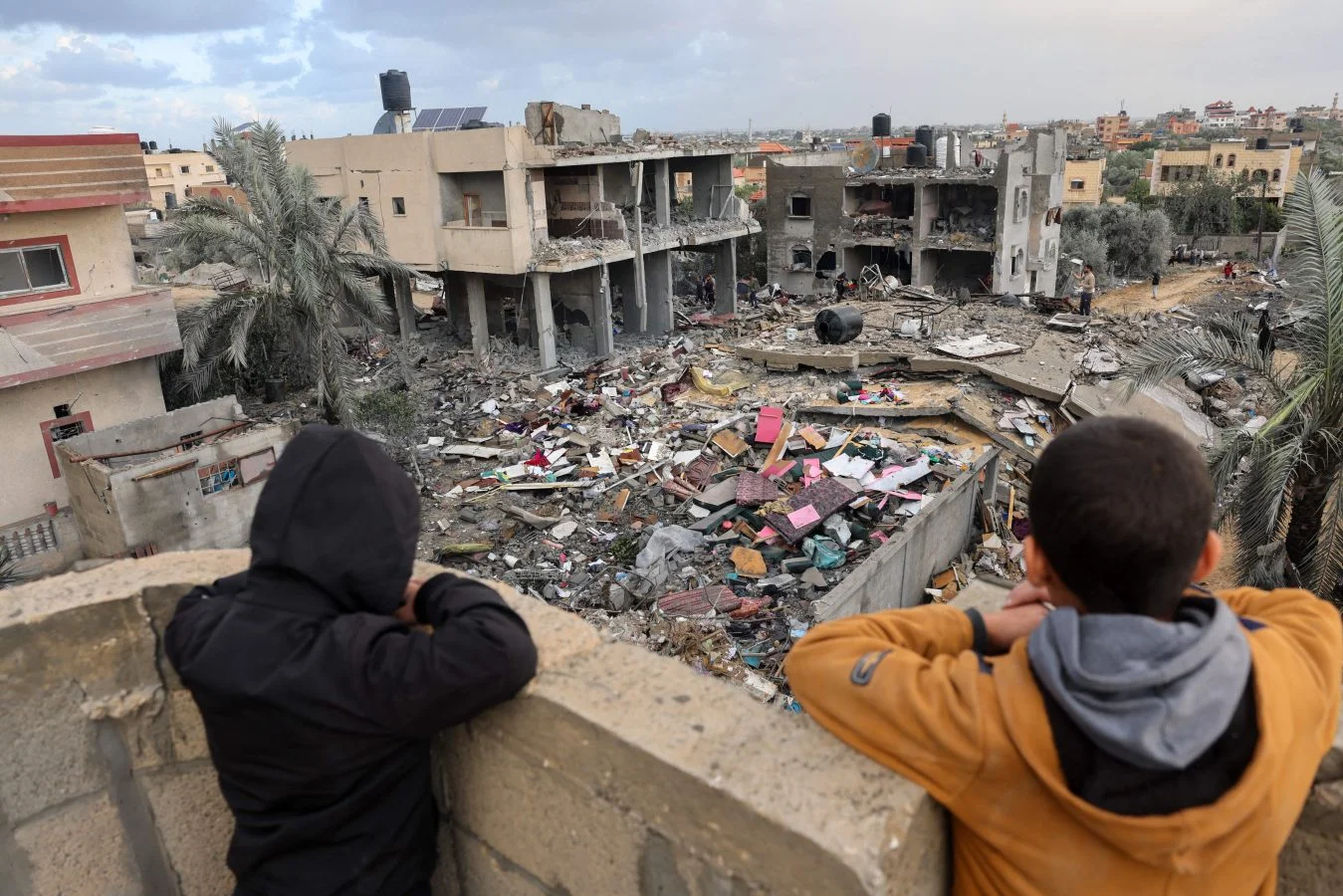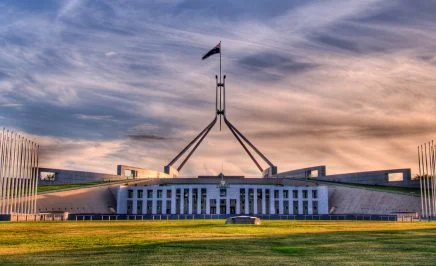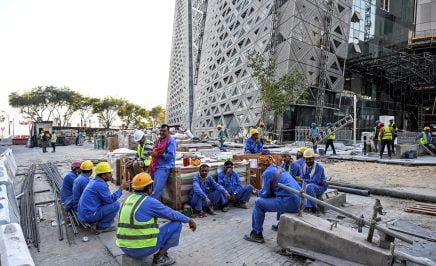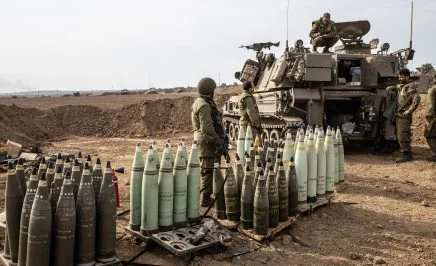This weekend marks six months since the most recent escalation of violence in Israel and the Occupied Palestinian Territories, after Hamas and other armed groups carried out attacks on 7 October killing over 1,200 people and taking more than 200 hostages. In retaliation the Israeli Defence Force (IDF) have carried out illegal attacks, indiscriminately and deliberately targeting civilians, hospitals and homes. Thousands of air and ground strikes have been launched on the Gaza strip, with over 32,000 Palestinians killed and more than 74,000 injured so far. Israel has also furthered its blockade of food, water and electricity on Gaza since 9 October, as well as obstructing humanitarian aid causing a humanitarian crisis.
Small Steps towards a ceasefire
While the situation in Gaza remains dire and is worsening for those civilians facing bombardment and famine, step by step, we’re making progress towards a ceasefire. This is thanks to the help of Palestinian and Jewish communities, and compassionate Australians standing in solidarity with them and fighting for justice, freedom and equality
International Court of Justice ruling – On 26 January, the International Court of Justice (ICJ) ruled that it was plausible that Israel is committing genocide against Palestinians in Gaza. It called for Israel to do everything in its power to prevent genocide and to allow aid into Gaza. The South African prosecution team used evidence gathered by Amnesty to demonstrate that Israeli forces were committing war crimes and violating international law in their attacks on Gaza. It also cited Amnesty research highlighting that Israel’s system of domination and oppression of Palestinians amounts to apartheid, a crime against humanity.
Resumption of UNRWA funding – Following pressure from Amnesty activists, Foreign Minister Penny Wong announced on 15 March that the Australian government would overturn its suspension of funding to the UN Relief and Works Agency for Palestinian Refugees (UNRWA). Not only did the government reinstate the $6 million dollars in funding, but also pledged an additional $2 million to UNICEF, the UN’s children agency, to provide relief in Gaza.
UN Security Council adopts resolution calling for a ceasefire – Thanks to everyone who joined protests or took action by emailing Foreign Minister Penny Wong, Australia shifted its position to call for a ceasefire in 2023. Finally, on 26 March, the UN Security Council passed a resolution which calls for an immediate ceasefire, the immediate and unconditional release of hostages and greater humanitarian aid access to Gaza.
None of this progress would’ve been possible without the actions and contributions of Amnesty’s ten million supporters around the world who came together to demonstrate solidarity and demand protection for the people of Gaza. While we’ve achieved a lot, the situation in Gaza still remains dire, and there’s still so much more to do.
The ongoing reality in Gaza
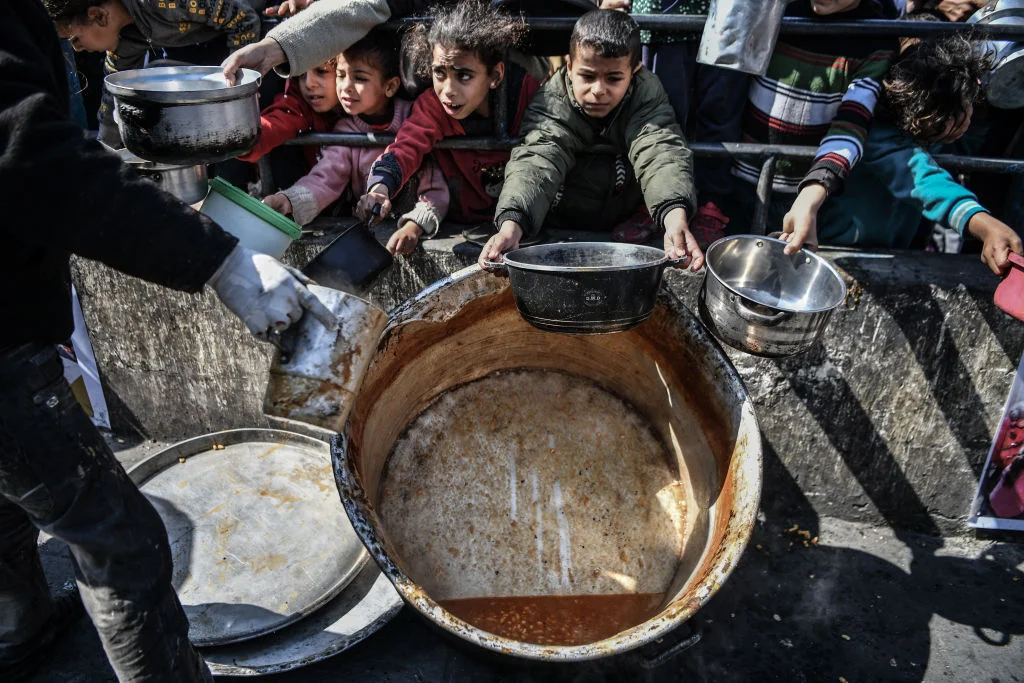
There’s nowhere safe in Gaza. Today, more children in Gaza are being starved to death and aid trucks with food and medicine are being denied access by the Israeli authorities creating an engineered famine. Suffering has reached catastrophic levels in northern Gaza, which has virtually been cut off from all humanitarian aid. Israeli attacks have killed hundreds of humanitarian workers as they try to deliver food to those who need it.
Amnesty has documented Israeli forces repeatedly attacking designated safe zones. Humanitarian and aid organisations have come under constant attack from Israeli forces, even after providing the locations of their staff and operations. Israeli forces continue to target civilians including humanitarian and aid workers from the UN, UNRWA (United Nations Relief and Works Agency), the Palestinian Red Crescent and World Central Kitchen despite their protected status under international law. The UN reports that 196 humanitarian aid workers have been killed attempting to deliver aid to people in Gaza since the crisis began. Consistent bombardment has destroyed homes, hospitals, aid stations and shelters.
Even in Rafah, where the majority of the civilian population has fled to, essential services and infrastructure are overwhelmed. The IDF has threatened to launch a ground operation in Rafah where more than 1.3 million civilians have fled, including at least 610,000 children. For the past six months, no place in or outside of Gaza has ensured Palestinians safety, access to food and water, shelter, or healthcare.
Lived Experiences
Amnesty Australia recently interviewed representatives from the Palestinian community to share their lived experience of the ongoing conflict. Our first story comes from Jayda Abu Musa, a Palestinian from Khan Younis, a city in the southern part of the Occupied Gaza Strip. She experienced the horrors of Israeli bombardment first hand. The second story comes from Nasser Mashni, President of the Australia Palestine Advocacy Network. He’s a first generation Australian and the son of a Palestinian refugee.
For Jayda October 7 was a day that changed her life for the worse. Living in Gaza, she had experienced wars and atrocities before, but she felt that this was different. Her worst fears came true on October 18 when a bomb struck her house. She lost relatives, friends, colleagues, people killed for simply existing in their homes.
“October the 7th was one of the darkest days of my life. I could just feel the chaos, the pain, the hopelessness and helplessness. And it still has not stopped since October the 7th. It still goes on and the pain goes on, and people still struggle to survive on a daily basis under the worst circumstances possible.”
The Palestinian community mourned and continues to mourn the loss of their home, community and loved ones. For Jayda and others the pain goes on, as people struggle to survive on a daily basis under extreme circumstances.
The destruction Jayda witnessed was unlike anything she’d seen before, beyond her wildest imagination. Facing a roller coaster of emotions, Jayda has felt touched by the huge amounts of solidarity in Australia and around the world.
“It weighs heavily on my heart every day, and it just makes me feel hopeless and helpless. But at the same time, we have nothing but hope”
For Nasser and Palestinian diaspora around the world, seeing the events of October 7 and its aftermath unfold through social media incited feelings of dread, horror and astonishment.
“We knew what would happen based on our experience and understanding that Zionism doesn’t see us as human, doesn’t see us as equal. And we knew that that pain would be felt not by Hamas, that Israel is in fact not at war with Hamas, but Israel is at war with Palestinians”
Nasser and Palestinians around the world have faced the same reality for the last six months, watching as constant bombardment of Gaza aims to make their homeland uninhabitable.
“Normal in Palestine is a Palestinian killed every 18 hours, every 18 hours, day on day, week on week, month on month, year on year”.
For Nasser, the silver lining after October 7 was the outpouring of support and protests that occurred, not only from within the Palestinian community but from outside it as well. He felt like people finally understood what Palestinians had been advocating about for years, and that change was on the horizon.
The 6 months of war have been incredibly taxing, not just for Palestinian people but for fieldworkers as well. Below is a testimony from an Amnesty fieldworker who can’t be named for security reasons.
After six months of the war on Gaza, I cannot believe that my family and I are still alive. I was hoping for this war to end during the past three months but here we are: seven months of war and no end in sight.
Amid the daily horror I’m living through and documenting, perhaps the only sliver of good news was the survival of my son, his wife and their two children. They fled Gaza city in March to reunite with us in the south. When I hugged him and hugged my grandchildren, I could barely believe that I was actually touching them. My son’s wife gave birth here in Rafah in unimaginably cruel and inhumane conditions, but we are more fortunate that most other families.
For the first time in six months, frozen chicken was allowed into Rafah. You feel happy for the children but you also can hardly hold back the tears: could you imagine that eating frozenchicken has become a dream for them?
Like everybody else in Rafah, we are terrified of any Israeli ground invasion. Where do we go next? Another displacement? But there is nowhere in Gaza that has been spared destruction: destruction in Khan Younis, destruction in the middle area; Est and west Rafah are full of internally-displaced people, you cannot even put another tent there. Where od these people go next? What fate awaits them? Where do you go when there is nowhere safe?
It is my job to document the violations but whenever I try to describe the suffering and the misery, I feel that my words are completely impotent. I try not to think too much, not to think of all the victims, all the cases we have worked on. But somehow the face of that man in Deir al-Balah, Suleiman al-Najjar, who lost 21 members of his family in an Israeli strike, does not evade me. The silent grief in his eyes while sitting on the rubble of his destroyed home, as if waiting for his wife and children to return, is etched into my heart. He lost everything. So many of the people we met during this war have lost everything: their entire families, their homes, their livelihoods. And yet we don’t have time to grieve, we don’t have time to think of our losses, we don’t have the luxury of breaking down. I am still resisting a breakdown. We are resisting in order to live; we are still trying to elude death, to create life out of lifelessness. And we have nothing but our hope and our unshakeable belief in God, that tomorrow will be better. We have this responsibility, to document, to bear witness, and this is what keeps me going.
What the Australian government needs to do next
With the ongoing horrors faced by over two million Gazans, it’s imperative that all Members of Parliament in the Federal Government use every opportunity and every power available to continue to call for a ceasefire. A permanent and sustained ceasefire will put an end to the mounting death toll and to unlawful attacks, and will enable aid agencies to get life saving supplies into Gaza to address the staggering levels of human suffering. A ceasefire will also provide opportunities to negotiate the release of hostages detained in Gaza.
“This resolution is long overdue, but in order to truly relieve the toll on civilians and address the mass devastation and suffering in Gaza, it is vital that it is implemented immediately and leads to an enduring ceasefire.”
Amnesty International’s Secretary General Agnès Callamard, in response to the UN Security Council adoption of resolution calling for a ceasefire
In addition, the Australian government needs to show support for unhindered humanitarian access, including food, medical supplies, and shelter, and to keep funding humanitarian assistance to alleviate the suffering of civilians in Gaza.
Finally, the Australian government needs to not allow the export of arms, arms parts, or ammunition to Israel. We must not allow anything manufactured in Australia to contribute to human rights abuses and violations of international humanitarian law.
What you can do
At times, it’s easy to feel hopeless and overwhelmed in the face of injustice, but your actions are powerful and can help protect the civilians in Gaza.
- We must make it clear to the government that Australians support a ceasefire and an end to the violence faced by the people of Gaza, and that everyone in power speaks up in support of a ceasefire. Ask MPs to apply pressure for AU Government to support a sustained ceasefire and unhindered humanitarian access
- Show your solidarity this weekend, RSVP to join us at a protest or vigil organised by or in collaboration with Palestinian and Jewish communities impacted by this crisis.
- Millions of Palestinians live under Israel’s system of apartheid, and at the heart of this violent system, is the Palestinian experience of being denied a home. Take action now by calling on Israeli Prime Minister Benjamin Netanyahu to immediately end the forced evictions of Palestinians, and the demolition of Palestinian homes. Sign the petition
- Educate yourself and spread awareness around you. You can keep up with the latest news about what’s happening in Gaza or use our toolkits – Responding to the Crisis Unfolding in Gaza or One-Stop Resource to Stay Informed, Challenge Misinformation and Change the Narrative.
- As Amnesty doesn’t accept funding from governments or political organisations, we rely on public support to carry our actions. Your donation today can support Amnesty’s urgent crisis response and help us continue to research, monitor and document human rights violations and call for perpetrators to be brought to justice. Donate to support Amnesty’s response to the Gaza crisis.
